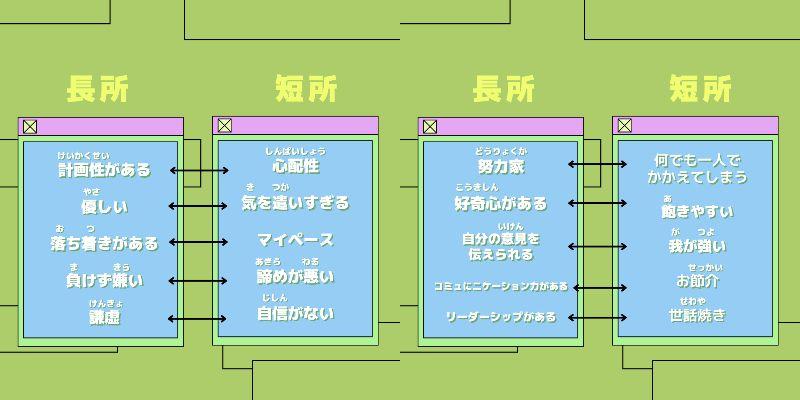HOW TO EXPRESS YOUR STRENGTHS AND WEAKNESSES (PART II.)
Today, we will continue to talk about how to explain your strengths and weaknesses during interviews.
First, it would be easier if you try to avoid talking about weaknesses that would potentially make the interviewer worried. One reason to refer to would be like, “Sleeping in class”.
The interviewer might think that you’re capable of doing the same things even when you enter the university you’re trying to get into.
That’s when point #2 comes in. (Refer to the last article)
When it comes to your weaknesses, choose something that can imaginably be your strength.
For example, anxious people usually tend to think something through before acting on things.
In other words, being anxious can also mean that you think and plan things ahead.
Even if you consider it as a flaw, you could get something good out of it. Finding a pro in the con, to put it in simple terms. That’s why we do recommend weighing and choosing carefully especially in terms of appropriately conveying yourself.
The trick is to think about your strengths first. From there, you might find, looking from a different aspect which can also be perceived as negative or weakness. Finding the con in the pro this time around.
For example, the negative side of being “too nice” is being “too sensitive or attentive to everything you’re surrounded with”. Another great example would be is having “hating to lose” as strength, which means the possible downside of it is not knowing when to give up.
By doing this, your efforts in improving your weakness would be prominent, and both points can be perceived as cohesive. This will leave a lasting impression with your interviewer.
Remember, if you are worried about how to properly convey your weaknesses, try to think of your strengths first.
Please look forward to part III for point #3!












